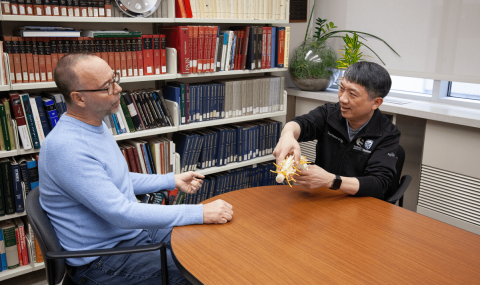Taking Care of the Patient
It is vital for the ICU team to know what medications your family member takes. Please provide a list of the patient's medications including over-the-counter drugs, vitamins, and herbal supplements.
There are many things you can do that will help the patient stay comfortable, such as talking to them in a low voice, bringing in some favourite music, or moistening their lips with a swab. The nurse will be glad to show you what will be most helpful.
Visiting practices
It is helpful for the patient to know people are there every day. Even if they are unconscious, it is important to speak to them as though they can hear you. Short, frequent visits are better than longer ones because the patient needs to rest often, and at regular times, to help them heal.
Relieving boredom
Patients in a conscious or semi-conscious state often find they are bored. Distractions such as music, a favourite movie, magazines, or recordings of books can provide a welcome break from worry and boredom. Staff will help you find the equipment you need. Please ask before bringing any equipment from home, as often electronics from home cannot be used in the Medical-Surgical ICU.
Taking Care of Yourself
When a loved one is sick or injured, is it easy to forget that you need to take care of yourself. The patient needs you to be as healthy as possible in order to provide support and advocacy during and after a stay in the Intensive Care Unit. Social, emotional, and spiritual well-being are vital to overall health.
Try to keep a normal routine
Try to keep your sleep, exercise, and meal routine as regular as possible. Taking a walk, grabbing a cup of coffee, getting some exercise, or going home for the day can help keep you well. Monitor your own health since medical conditions you may have can change during stressful times.
Discuss uncertainties
It is difficult at times to stay positive but realistic about the patient’s health. There may be signs of progress, then setbacks, and you may hope for a complete cure or a painless end to suffering. It helps to talk about your thoughts and feelings. Remember, the staff are there to help you too. Please speak to the bedside nurse or the Medical-Surgical ICU social worker if you need to talk.
Take the help that is offered and ask for what you need
Most people benefit from social and spiritual support in difficult times. Your family and friends may feel helpless and offer to help with meals, child care, walking a dog, or running errands. Take them up on their offers of support. Talking about your fears and concerns with your family and friends can help everyone better understand the situation and help you get the support you need. Our social worker can also help by listening to your concerns and getting you in contact with local support groups.
Contact Information:
Department Email: icufeedback@lhsc.on.ca


